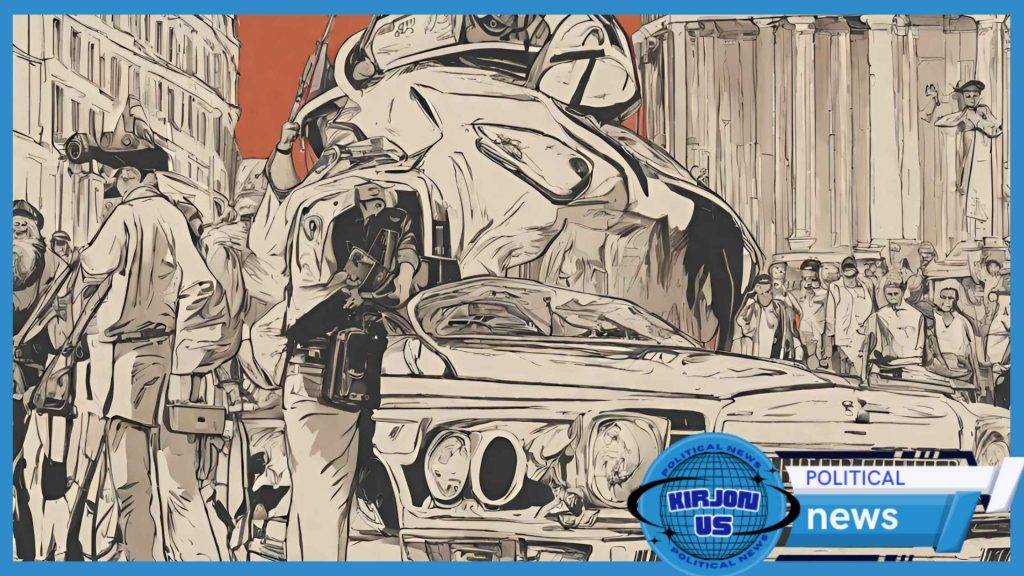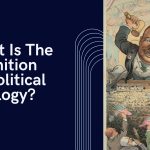Political ideologies serve as guiding frameworks that shape the beliefs, values, and actions of individuals and groups within society. From liberalism to socialism, conservatism to feminism, these ideologies offer distinct perspectives on governance, economics, social justice, and individual freedoms. In a world marked by diversity and differing viewpoints, grasping the essence of these ideologies is essential for comprehending political debates, policy decisions, and the broader dynamics of societal change. This article provides an insightful exploration of ten prominent political ideologies, shedding light on their defining characteristics, historical roots, and influential proponents. By delving into these ideologies, readers can gain a deeper understanding of the rich tapestry of political thought that shapes our global landscape.
Liberalism

Definition and Core Principles
Liberalism, as a political ideology, emphasizes individual liberties, equality, and the rule of law. At its core, liberalism advocates for a society where individuals have the freedom to pursue their interests and aspirations without undue interference from the state or other authorities. Central to liberal thought is the belief in civil liberties, including freedom of speech, religion, press, and assembly. Moreover, liberalism promotes the idea of equal rights and opportunities for all members of society, regardless of their background or status.
Variations Within Liberalism
While liberalism shares common principles, there exist variations within the ideology, reflecting diverse approaches to governance and policy. Classical liberalism, rooted in the works of thinkers like John Locke and Adam Smith, emphasizes limited government intervention in economic and social affairs, favoring free markets and individual autonomy. On the other hand, modern liberalism, also known as social liberalism, places greater emphasis on government intervention to address social inequalities, provide public services, and regulate markets in the pursuit of social justice.
Key Figures and Historical Context
Throughout history, numerous figures have played pivotal roles in shaping liberal thought and advocating for its principles. Enlightenment philosophers such as John Locke, Voltaire, and Jean-Jacques Rousseau laid the groundwork for liberal ideas, promoting concepts like natural rights, social contract theory, and the separation of powers. In the realm of politics, leaders like Thomas Jefferson, John Stuart Mill, and Franklin D. Roosevelt championed liberal values and policies, contributing to the expansion of individual rights, democracy, and welfare initiatives.
Liberalism emerged as a prominent force during the Age of Enlightenment in Europe, challenging traditional hierarchies and advocating for democratic governance and individual freedoms. The ideas of liberalism gained traction during periods of social upheaval, such as the American and French Revolutions, where calls for liberty, equality, and fraternity reverberated throughout society. In the modern era, liberal democracies have become prevalent across much of the Western world, shaping political systems and institutions based on principles of liberalism.
Conservatism

Definition and Core Principles
Conservatism, as a political ideology, prioritizes the preservation of traditional values, institutions, and social norms. Rooted in a belief in continuity and stability, conservatism advocates for gradual change rather than radical upheaval. At its core, conservatism values the wisdom of past generations, seeking to conserve established customs, traditions, and institutions that have proven effective over time. Central to conservative thought is a skepticism towards rapid social change and a preference for maintaining order, hierarchy, and authority within society.
Variations Within Conservatism
While conservatism shares a common emphasis on tradition and stability, there exist variations within the ideology, reflecting different interpretations and approaches. Traditional conservatism, often associated with thinkers like Edmund Burke, emphasizes the importance of organic societal development, gradual reform, and respect for established institutions and customs. In contrast, neoconservatism emerged in the 20th century as a response to perceived threats to traditional values and national security, advocating for a strong military, assertive foreign policy, and promotion of democratic ideals abroad.
Key Figures and Historical Context
Throughout history, influential figures have shaped conservative thought and contributed to its development as a political ideology. Edmund Burke, an 18th-century philosopher and statesman, is often regarded as the father of modern conservatism for his defense of traditional institutions and gradual reform. In the United States, conservative leaders such as Ronald Reagan and Margaret Thatcher played significant roles in promoting conservative principles of limited government, free markets, and individual responsibility during the late 20th century.
Conservatism emerged as a response to the social, political, and economic upheavals brought about by the Enlightenment and the French Revolution. In the aftermath of these events, conservative thinkers sought to uphold traditional values, institutions, and social hierarchies against the tide of revolutionary change. Over time, conservatism evolved into a diverse and multifaceted ideology, encompassing various strands ranging from cultural conservatism to economic conservatism. Today, conservatism continues to exert influence in politics and society, shaping debates over issues such as immigration, cultural identity, and the role of government.
Socialism
Definition and Core Principles
Socialism is a political and economic ideology that advocates for collective ownership and democratic control of the means of production, distribution, and exchange. At its core, socialism seeks to address economic inequality and promote social justice by redistributing wealth and resources more equitably among members of society. Central to socialist thought is the belief in cooperation over competition, with an emphasis on meeting the needs of all individuals rather than maximizing profits for a privileged few.
Variations Within Socialism
While socialism shares a common commitment to economic equality and social welfare, there exist variations within the ideology, reflecting different approaches to achieving its goals. Democratic socialism, for example, advocates for a mixed economy where some industries are owned and operated by the state or worker cooperatives, while others remain under private ownership. In contrast, revolutionary socialism, often associated with Marxism, calls for the abolition of capitalism and the establishment of a classless society through revolutionary means.
Key Figures and Historical Context
Throughout history, socialist thinkers and leaders have played significant roles in shaping the ideology and advocating for its principles. Karl Marx and Friedrich Engels, in their seminal work “The Communist Manifesto,” laid out the foundations of modern socialism, critiquing capitalism and calling for the overthrow of the bourgeoisie by the proletariat. In the realm of politics, figures like Vladimir Lenin, Mao Zedong, and Salvador Allende implemented socialist policies and experimented with different forms of socialist governance.
Socialism emerged as a response to the social and economic inequalities produced by industrial capitalism during the 19th century. The harsh working conditions, exploitation of labor, and widening wealth gap experienced by workers fueled discontent and led to calls for systemic change. Socialists sought to address these injustices by advocating for worker ownership, social welfare programs, and collective action to challenge the power of capitalist elites. While the implementation of socialist policies has varied across different countries and contexts, the underlying goal of creating a more egalitarian and democratic society remains central to the socialist vision.
Communism

Definition and Core Principles
Communism is a political and economic ideology that advocates for the abolition of private property and the establishment of a classless society where the means of production are owned collectively by the community. At its core, communism seeks to eliminate the inequalities and exploitation inherent in capitalist societies by creating a system based on common ownership, cooperation, and shared resources. Central to communist thought is the principle of “from each according to their ability, to each according to their needs,” emphasizing the equitable distribution of wealth and resources based on individual contributions and societal needs.
Variations Within Communism
While communism shares a common goal of creating a classless society, there exist variations within the ideology, reflecting different interpretations and approaches. Marxist-Leninism, derived from the ideas of Karl Marx and Vladimir Lenin, advocates for a vanguard party to lead the proletariat in overthrowing capitalism and establishing a socialist state as a transition towards communism. Maoism, influenced by the teachings of Mao Zedong, emphasizes the role of peasants and rural revolution in the struggle for communism, as well as the importance of continuous revolution to prevent the rise of a new bourgeoisie.
Key Figures and Historical Context
Throughout history, communist theorists and leaders have played pivotal roles in shaping the ideology and implementing communist policies. Karl Marx, in his works “Das Kapital” and “The Communist Manifesto,” laid out the theoretical foundations of communism, critiquing capitalism and predicting its eventual collapse. Vladimir Lenin, leader of the Bolshevik Party, led the October Revolution in Russia and established the world’s first socialist state, laying the groundwork for the spread of communism internationally. Figures like Mao Zedong in China, Fidel Castro in Cuba, and Ho Chi Minh in Vietnam implemented communist policies and sought to build socialist societies based on Marxist principles.
Communism emerged as a response to the social and economic injustices of capitalist societies during the 19th and 20th centuries. The exploitation of workers, widening wealth gap, and recurring economic crises fueled discontent and revolutionary fervor among the proletariat. Communists sought to harness this discontent and mobilize the working class to overthrow the capitalist ruling class and establish a new social order based on equality, solidarity, and collective ownership. While the implementation of communism has faced challenges and criticisms, its ideals continue to inspire movements for social change and revolution around the world.
Fascism
Definition and Core Principles
Fascism is a far-right political ideology characterized by authoritarianism, nationalism, and dictatorial power. At its core, fascism emphasizes the supremacy of the nation or ethnic group, advocating for a strong, centralized government led by a charismatic leader. Central to fascist thought is the rejection of liberal democracy, individual rights, and pluralism in favor of hierarchical social structures and the glorification of the state. Fascism often promotes aggressive militarism, expansionism, and the suppression of dissent to maintain control and achieve nationalistic goals.
Variations Within Fascism
While fascism shares common characteristics, there exist variations within the ideology, reflecting different historical contexts and ideological influences. Italian Fascism, founded by Benito Mussolini in the early 20th century, emphasized the primacy of the state over individual rights and sought to revive Italy’s imperial glory through expansionist policies. Nazi Germany, under the leadership of Adolf Hitler, espoused a racist form of fascism that targeted Jews, Romani people, and other marginalized groups for persecution and extermination as part of its genocidal agenda.
Key Figures and Historical Context
Throughout history, fascist leaders and movements have emerged in various countries, each leaving a distinct imprint on the ideology and its manifestations. Benito Mussolini, as the founder of Italian Fascism, played a central role in shaping fascist ideology and implementing authoritarian policies during his rule as Prime Minister of Italy. Adolf Hitler, as the leader of the National Socialist German Workers’ Party (Nazi Party), orchestrated the rise of fascism in Germany and unleashed a reign of terror that led to World War II and the Holocaust.
Fascism emerged in the aftermath of World War I, amidst social and economic upheaval, nationalist fervor, and the perceived failures of liberal democracy and socialism. Fascist movements capitalized on discontent and disillusionment, offering a vision of national rejuvenation, order, and unity in the face of perceived internal and external threats. The Great Depression further fueled the rise of fascism, as economic hardship and political instability provided fertile ground for extremist ideologies to gain traction. While fascism ultimately led to catastrophic consequences, its legacy serves as a cautionary tale about the dangers of authoritarianism, ultranationalism, and totalitarianism in politics and society.
Anarchism

Definition and Core Principles
Anarchism is a political ideology that advocates for the abolition of all forms of hierarchical authority, including the state, capitalism, and other oppressive institutions. At its core, anarchism promotes the idea of voluntary cooperation, mutual aid, and decentralized decision-making among individuals and communities. Anarchists envision a society based on principles of freedom, equality, and solidarity, where people organize themselves directly without the need for coercive authority or domination.
Variations Within Anarchism
While anarchism shares a common goal of dismantling hierarchies and promoting autonomy, there exist variations within the ideology, reflecting different philosophical, strategic, and organizational approaches. Anarcho-communism, influenced by the ideas of Peter Kropotkin, advocates for the abolition of private property and the establishment of a classless, stateless society where resources are held in common and distributed according to need. Anarcho-syndicalism, on the other hand, emphasizes the role of labor unions and workers’ councils in organizing resistance to capitalism and building alternative forms of social organization.
Key Figures and Historical Context
Throughout history, anarchists and anarchist movements have played significant roles in challenging authority, promoting social justice, and inspiring revolutionary change. Mikhail Bakunin, a Russian revolutionary and theorist, is often regarded as one of the founding figures of modern anarchism for his critique of authoritarian socialism and advocacy for revolutionary syndicalism. Emma Goldman, an American anarchist and feminist, advocated for a wide range of social reforms, including women’s rights, labor rights, and freedom of speech.
Anarchism emerged as a response to the injustices and inequalities perpetuated by hierarchical power structures, including the state, capitalism, and organized religion. Anarchist movements gained momentum during periods of social upheaval, such as the Industrial Revolution and the rise of labor struggles, as workers and marginalized groups sought to challenge oppressive systems and assert their autonomy. While anarchism has often been misrepresented and misunderstood as synonymous with chaos or disorder, its proponents argue that true freedom and justice can only be achieved through the abolition of unjust hierarchies and the cultivation of cooperative, non-coercive relationships within society.
Libertarianism
Definition and Core Principles
Libertarianism is a political ideology that emphasizes individual liberty, limited government intervention, and free-market economics. At its core, libertarianism advocates for maximizing personal freedom and autonomy while minimizing the role of the state in regulating economic and social affairs. Libertarians believe that individuals should be free to live their lives as they see fit, provided they do not infringe upon the rights of others. Central to libertarian thought is the principle of self-ownership, which asserts that individuals have the right to control their own bodies, property, and choices without interference from external authorities.
Variations Within Libertarianism
While libertarianism shares a common commitment to individual freedom and limited government, there exist variations within the ideology, reflecting different interpretations and policy preferences. Classical liberalism, a precursor to modern libertarianism, emphasizes the protection of natural rights, including life, liberty, and property, through the rule of law and minimal state intervention. Libertarian socialism, on the other hand, combines libertarian principles of personal autonomy with socialist ideals of collective ownership and social equality, advocating for decentralized forms of governance and economic organization.
Key Figures and Historical Context
Throughout history, libertarian thinkers and activists have contributed to the development and promotion of libertarian ideas across a range of political and social contexts. John Locke, an influential Enlightenment philosopher, laid the groundwork for classical liberalism with his defense of natural rights and limited government in works such as “Two Treatises of Government.” Ayn Rand, a novelist and philosopher, popularized libertarian principles of individualism, rational self-interest, and laissez-faire capitalism through her writings, including “Atlas Shrugged” and “The Fountainhead.”
Libertarianism emerged as a response to perceived encroachments on individual liberty and economic freedom by centralized authorities, including governments and corporations. Libertarian movements gained traction during periods of social and political upheaval, such as the Cold War era and the rise of neoliberalism, as individuals and groups sought to resist state intervention and promote market-based solutions to social problems. While libertarianism has faced criticism for its emphasis on individualism and limited government, its proponents argue that freedom and prosperity are best achieved through voluntary cooperation, free markets, and respect for individual rights.
Environmentalism
Definition and Core Principles
Environmentalism is a political and social movement that advocates for the protection and preservation of the natural world and its ecosystems. At its core, environmentalism emphasizes the interconnectedness of all living beings and the importance of sustainable practices to ensure the health and well-being of the planet. Environmentalists seek to address pressing issues such as climate change, pollution, deforestation, and loss of biodiversity through activism, advocacy, and policy initiatives. Central to environmentalist thought is the recognition of humanity’s responsibility to act as stewards of the Earth, safeguarding its resources for present and future generations.
Variations Within Environmentalism
While environmentalism shares a common concern for environmental protection, there exist variations within the movement, reflecting different priorities, strategies, and philosophies. Conservationism, for example, focuses on the responsible management and preservation of natural resources for human use and enjoyment, often emphasizing practical solutions and compromise with industry. Deep ecology, on the other hand, advocates for a radical shift in human attitudes and behaviors towards nature, promoting a holistic worldview that recognizes the intrinsic value of all life forms and ecosystems.
Key Figures and Historical Context
Throughout history, environmentalists and conservationists have played pivotal roles in raising awareness about environmental issues and advocating for policy reforms. Rachel Carson, author of “Silent Spring,” is often credited with sparking the modern environmental movement by exposing the dangers of pesticides and their impact on wildlife and human health. John Muir, founder of the Sierra Club, was a leading voice for wilderness preservation and the establishment of national parks in the United States.
Environmentalism emerged in response to growing concerns about the degradation of the natural environment and the unsustainable practices of industrialized societies. The rise of industrialization, urbanization, and intensive agriculture in the 19th and 20th centuries led to widespread pollution, habitat destruction, and species extinction, prompting calls for greater environmental awareness and action. Environmental movements gained momentum during the latter half of the 20th century, spurred by events such as the first Earth Day in 1970 and the recognition of global environmental challenges such as climate change. Today, environmentalism continues to be a driving force for positive change, inspiring individuals, communities, and governments to adopt more sustainable practices and policies to safeguard the planet for future generations.
Nationalism
Definition and Core Principles
Nationalism is a political ideology that prioritizes the interests, unity, and sovereignty of a particular nation or ethnic group. At its core, nationalism emphasizes loyalty, pride, and attachment to one’s nation, often promoting the idea of national identity, cultural heritage, and territorial integrity. Nationalists advocate for the preservation of national sovereignty, autonomy, and independence from external interference or domination. Central to nationalist thought is the belief in the primacy of the nation-state as the primary unit of political organization and collective identity.
Variations Within Nationalism
While nationalism shares common themes of patriotism and loyalty to one’s nation, there exist variations within the ideology, reflecting different historical contexts, cultural identities, and political goals. Civic nationalism, for example, emphasizes shared values, principles, and citizenship as the basis for national identity, welcoming diversity and inclusivity within the nation. Ethnic nationalism, on the other hand, prioritizes common ancestry, language, and culture as defining characteristics of the nation, often excluding or marginalizing minority groups perceived as outsiders.
Key Figures and Historical Context
Throughout history, nationalist movements and leaders have played significant roles in shaping the course of politics, culture, and society. Giuseppe Garibaldi, a key figure in the Italian unification movement, rallied support for the creation of a unified Italian nation-state in the 19th century, contributing to the emergence of modern Italy. Mahatma Gandhi, leader of the Indian independence movement, mobilized millions of Indians in the struggle against British colonial rule, advocating for self-determination and national sovereignty.
Nationalism emerged as a powerful force during the 19th century, amidst the rise of nation-states and the spread of ideas of popular sovereignty and self-determination. Nationalist movements sought to challenge imperial domination, forge cohesive national identities, and assert the rights of nations to govern themselves free from external interference. While nationalism has often been a driving force for liberation and self-determination, it has also been associated with exclusionary practices, ethnocentrism, and conflict, leading to tensions between different national and ethnic groups. Despite these complexities, nationalism continues to shape politics and identity around the world, influencing debates over immigration, globalization, and national sovereignty in an increasingly interconnected world.
Conclusion
In conclusion, political ideologies play a crucial role in shaping the beliefs, values, and actions of individuals and societies. From liberalism to nationalism, each ideology offers a distinct perspective on governance, economics, and social organization. While these ideologies vary widely in their principles and priorities, they all contribute to the rich tapestry of political thought that informs our understanding of society and informs our decisions.
Understanding the ten political ideologies covered in this article provides valuable insights into the diverse range of perspectives and approaches to political and social issues. Whether advocating for individual freedoms, social justice, environmental protection, or national sovereignty, each ideology reflects the aspirations and concerns of its adherents. By exploring these ideologies in depth, we can gain a deeper appreciation for the complexities of political discourse and the importance of engaging with diverse viewpoints in shaping our collective future.
In an ever-changing world marked by uncertainty and challenges, the principles and values espoused by these ideologies continue to guide individuals and societies in navigating complex political, economic, and social landscapes. By critically examining these ideologies and their implications, we can strive to build more inclusive, equitable, and sustainable societies that reflect the aspirations and values of all people.
FAQs
1. What is the difference between liberalism and conservatism?
Liberalism emphasizes individual liberties, equality, and limited government intervention, while conservatism prioritizes the preservation of traditional values, institutions, and social norms.
2. How does socialism differ from communism?
Socialism advocates for collective ownership and democratic control of the means of production, distribution, and exchange, while communism seeks to establish a classless society where resources are held in common and distributed according to need.
3. What are the core principles of environmentalism?
Environmentalism emphasizes the protection and preservation of the natural world, promoting sustainable practices, and addressing issues such as climate change, pollution, and loss of biodiversity.
4. What is the main goal of nationalism?
Nationalism seeks to prioritize the interests, unity, and sovereignty of a particular nation or ethnic group, often emphasizing national identity, cultural heritage, and territorial integrity.
5. How do libertarianism and anarchism differ?
Libertarianism advocates for individual liberty, limited government intervention, and free-market economics, while anarchism seeks to abolish all forms of hierarchical authority, including the state, capitalism, and other oppressive institutions.







